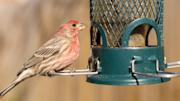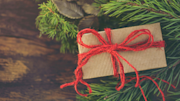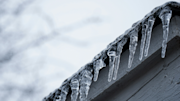Decluttering tips for a safer, less-stressful home
What do you feed garden your birds?

Do you love wildlife? You’re not alone! According to the RSPB, over half of adults in the UK feed their local birds. Providing much-needed nutrients during times of food shortage, feeders, bird tables and bird baths are brilliant for helping our feathered friends.
There’s enjoyment to be had too. By putting out treats, you can marvel at birds varying in colour and character. Many homeowners start feeding birds during the wintertime when they need nourishment the most, and then offer food on a daily basis throughout the rest of the year.
Once you start feeding birds, you should try and stick to a routine, otherwise your beaked buddies could miss out on much-needed treats!
Popular treats
Birds love a good mix of nuts, fruits and seeds, so packing your feeder with plenty of these will keep them happy. If your garden is a sparrow or finch paradise, you might need to leave out small seeds such as millet, whereas tits and greenfinches much prefer peanuts and sunflower seeds.
Take a look at what’s been eaten in your feeder next time they’ve finished snacking for a good indicator of which birds love your garden the most.
The main attraction
The birds you are most likely to come across in your garden are starlings, house sparrows, blackbirds, blue and great tits, robins, greenfinches and collared doves.
If you live in a wooded area, you may be lucky enough to come across a great spotted woodpecker or a nuthatch. Leaving out fruit and berries can also encourage thrushes, fieldfares and redwings to pay a visit.
When to feed
Depending on which time of year you put your feeder out, it’s a good idea to know what the birds really need, whether it’s spring, summer, autumn or winter.
During the colder months, birds need high-fat foods, so fat balls are an excellent choice. If there’s a severe cold snap outside or there’s been a storm, birds may need to be fed twice daily; once in the morning and again in the early afternoon. Although feeding more during winter is a good idea, birds still need nourishment year round.
Some extra tips:
- Avoid putting out homemade fat balls during the summer months. The heat can cause them to go soft and rancid.
- High protein foods are good for birds during the summer months, as this is when they moult.
- During the spring and summer months, avoid foods that are difficult to swallow such as loose peanuts, chunks of dry bread or fats. This can cause younger birds to choke.
- Animal fat is a big no-no. It's so soft that it will stick to a birds’ feathers, stopping them from keeping waterproof and warm.
- Only put out what will get eaten during the day. This is important if you want to avoid unwanted visitors and vermin.
- Dirty bird feeders and bird tables can host diseases. Make sure you clean them regularly to keep your feathered friends healthy and happy.
- Never put out any food in mesh bags, these can trap birds’ feet.
- Try sprinkling grated mild cheese under trees and bushes to attract more timid birds like wrens and dunnocks.
If you need more information on looking after wildlife, visit the RSPB site to read their library of articles and guides.
Exclusive offers for Co-op Members

Home insurance
Exclusive member price on home insurance.
Your discount is not available on add ons and is applied if your details match those on our membership database.

Renters insurance
Co-op Members who take out renters insurance will get a 5% discount.
Member discount applied if matched during quote process.






